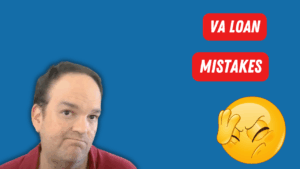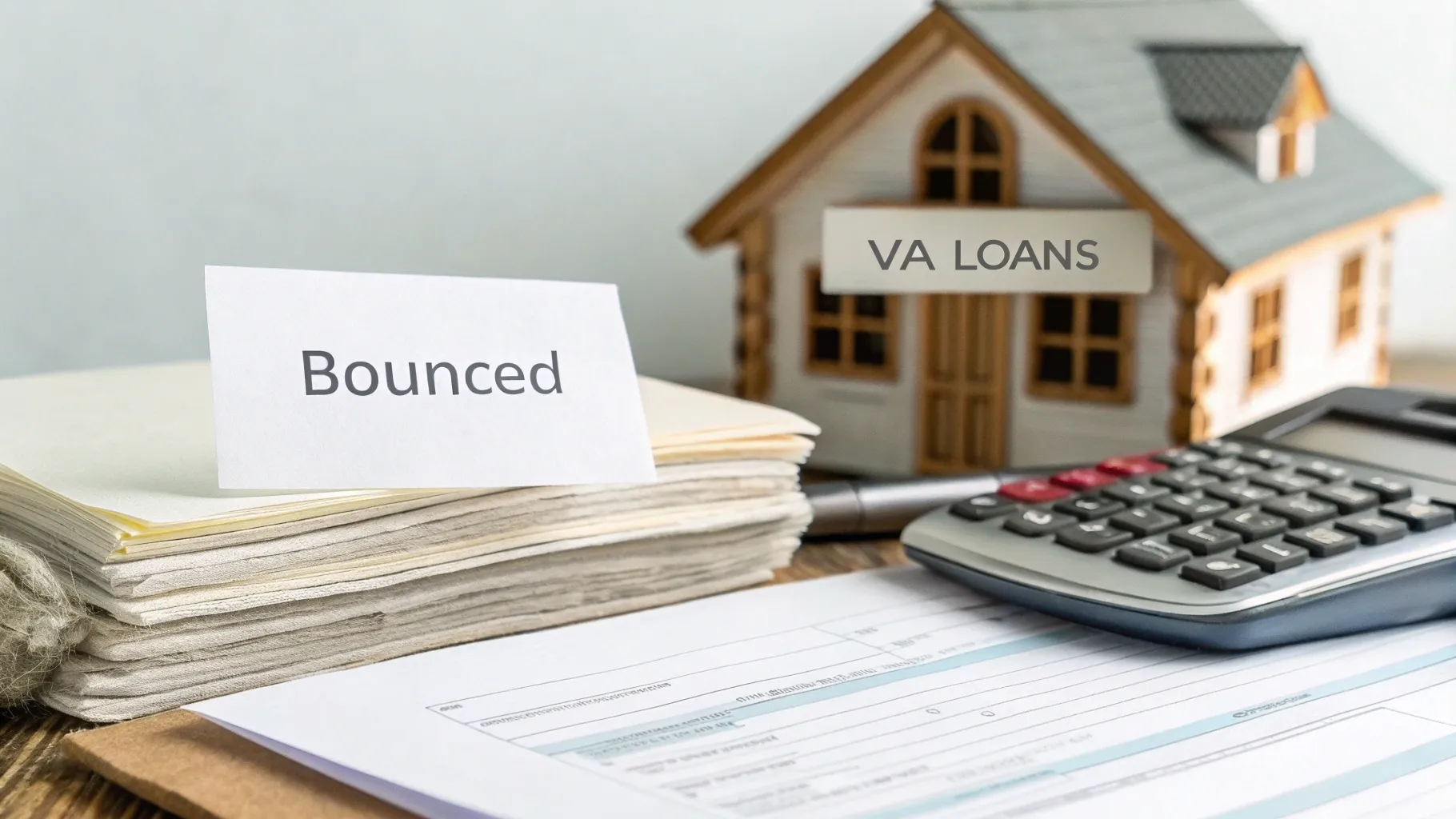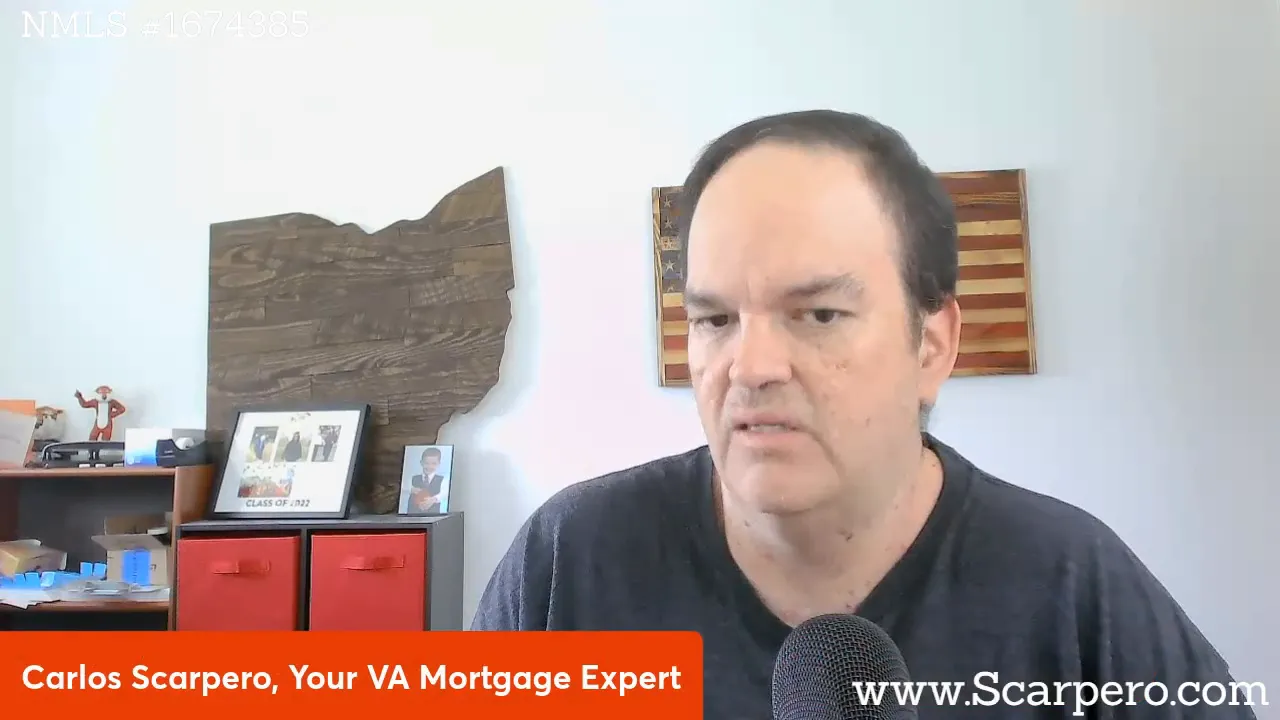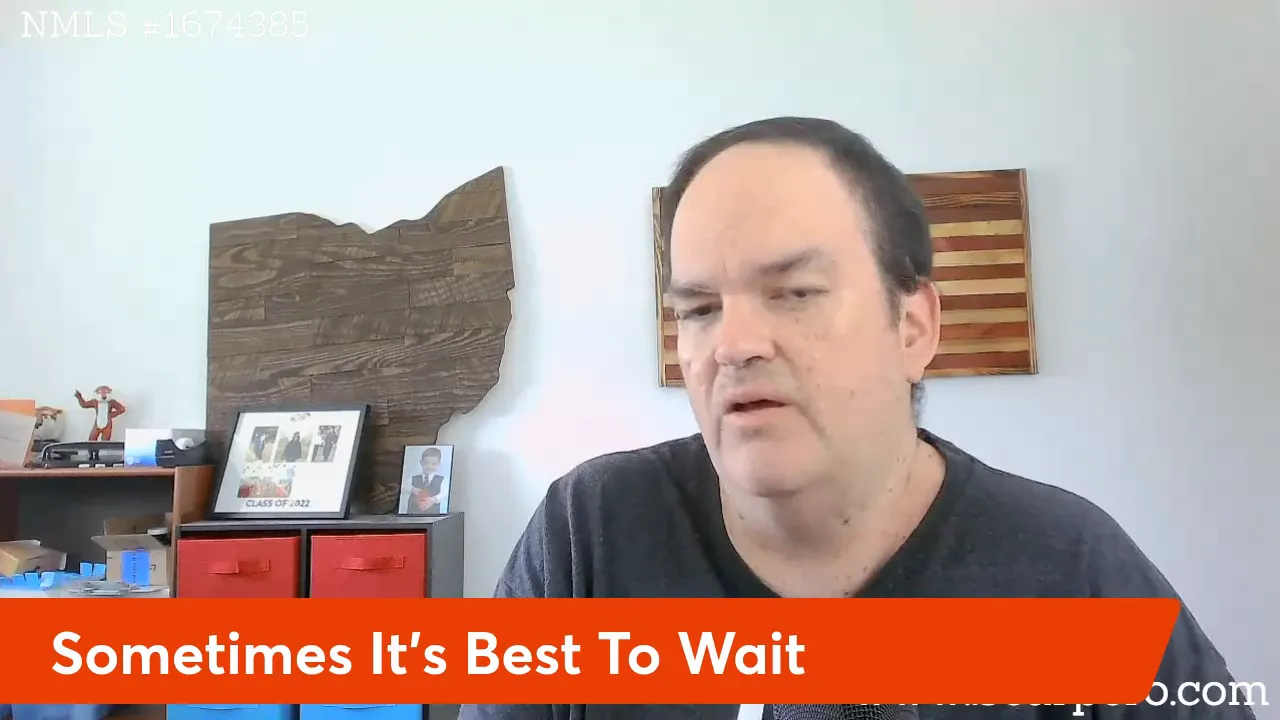
The 6 Most Common Mistakes That VA Homebuyers Make
Template The 6 Most Common Mistakes That First Time VA Homebuyers Make Buying your first home using a VA loan is an exciting milestone, especially
Carlos Scarpero- Mortgage Broker

Many veterans and homebuyers wonder whether having bounced checks on their bank account will prevent them from qualifying for a VA loan. This is a common and important question because financial missteps like overdrafts can cause anxiety when applying for a mortgage. In this article, I will break down the truth about bounced checks and VA loans, sharing insights from my experience as a full-service mortgage broker working with over 150 lenders across multiple states.
We will explore what official VA guidelines say (and don’t say), how underwriters evaluate bounced checks, lender overlays, and real-world examples of approvals and denials. Whether you’ve had a single bounced check or several, understanding how to handle the situation can make all the difference between “declined” and “clear to close.”
First, it’s important to know that the VA loan handbook does not explicitly address bounced checks. The official guidance is minimal and essentially advises underwriters to use their best judgment. This means that bounced checks are considered a negative factor, but they are not an automatic disqualifier for your VA loan application.
Every underwriter will see bounced checks as a red flag because they indicate potential financial instability or mismanagement. However, since the VA does not have a hard rule against them, the final decision often depends on the underwriter’s discretion and the lender’s own policies.

One key concept to understand is lender overlays. These are additional rules or restrictions lenders place on top of VA requirements. Some lenders have strict overlays that say “no bounced checks, period.” Others are more flexible and willing to consider the context and explanations provided by the borrower.
Underwriter discretion plays a huge role here. Because the VA handbook tells underwriters to “use your best judgment,” there is a lot of gray area. Some underwriters are more comfortable approving loans with minor issues, while others may be more conservative.
As a mortgage broker, this means you can shop around. I often submit the same borrower scenario to multiple lenders because one lender might approve it while another might decline it. This flexibility can be a huge advantage for veterans navigating the VA loan process with bounced checks on their record.

If you have bounced checks, be prepared to explain two crucial things:
Underwriters want assurance that the bounced checks were an anomaly and not a sign of ongoing financial irresponsibility. Your explanation and evidence of positive change can sway the decision in your favor.
Let me share two real-life examples to illustrate how bounced checks can impact VA loan approval.
In the first case, the borrower had a credit score in the mid-600s (around 610), which is decent. His credit report showed no late payments in the past year, which is a positive sign. On paper, this looked like an approvable loan.
However, when I reviewed his bank statements, I saw a different story. He kept his checking account balance under $100 most months and had about three bounced checks per month over two months of statements. The bank’s summary showed he paid nearly $950 in bounced check fees over the past year, indicating close to 30 bounced checks annually.
This was a major red flag. When I asked him why it was happening and how he planned to stop it, his answers were vague. Additionally, he was trying to buy a home priced at twice his rent, which was financially risky given his unstable banking history.
Because of these factors, we had to decline the loan. This case shows that frequent overdrafts without a solid explanation or financial improvement typically lead to denial.
Contrast that with another borrower who had a more understandable situation. He had a debit card that he believed had a safeguard to prevent overdrawing the account. Unfortunately, that was not true. His bank had a “tolerance” policy that allowed the account to go negative and charged a $35 fee, which rolled over.
He accidentally made a few large debit card purchases and went about $200 negative. He did not realize this at the time and was able to explain the mistake honestly. More importantly, since then, he had secured a new job with significantly higher income, which improved his financial stability.
Because he provided a clear explanation and demonstrated positive change, we were able to get his VA loan approved and closed successfully in Texas.
Sometimes the best advice is to wait. VA lenders typically only review the last two months of bank statements. If you have a bounced check or two but cannot provide a convincing explanation or evidence of improved habits, waiting until those bounced checks no longer appear in recent statements can increase your chances.
This “waiting period” can be a strategic move rather than rushing into an application that might get denied. Patience can be a virtue when it comes to qualifying for a VA loan with a history of bounced checks.

Bounced checks are a common concern for VA loan applicants, but they are not an automatic barrier to homeownership. The VA itself does not have strict rules against bounced checks, leaving much of the decision to lender policies and underwriter judgment.
Key factors that influence approval include the frequency of bounced checks, the explanations provided, and whether there is evidence of financial improvement or stability. Shopping around for lenders and communicating openly about your situation are essential steps.
Remember, every case is unique. If you have questions or want personalized advice about VA loans and bounced checks, don’t hesitate to reach out to a trusted mortgage professional who understands the nuances of VA lending.
No, a single bounced check is not an automatic disqualification. Underwriters consider it a negative factor but will look at the overall financial picture and your explanation.
Multiple overdrafts, especially if frequent and unexplained, can seriously harm your VA loan chances. Lenders may decline the loan if they see a pattern of poor financial management.
No, lender overlays vary. Some lenders have strict no-bounced-check policies, while others allow some flexibility based on circumstances and borrower explanations.
Typically, lenders review the last two months of bank statements. Older bounced checks may not impact your current application.
Be prepared to explain why the bounced checks occurred and what steps you have taken to prevent it from happening again. If you cannot explain it, consider waiting until your recent bank statements no longer show overdrafts.
Yes, demonstrating improved financial stability, such as a higher income, can mitigate the negative impact of bounced checks and help underwriters approve your loan.

Template The 6 Most Common Mistakes That First Time VA Homebuyers Make Buying your first home using a VA loan is an exciting milestone, especially

500,000 More Home Sellers Than Buyers? Don’t Believe the Hype Table of Contents Key Takeaways Understanding Redfin’s Viral Housing Study Contrasting Data from Realtor.com and

Template Edge Home Finance Is Hiring Loan Officers Table of Contents Key Takeaways Why commission structure matters: keep what you earn True broker relationships, with